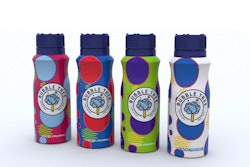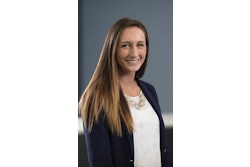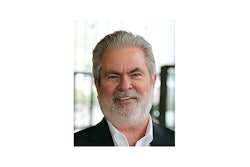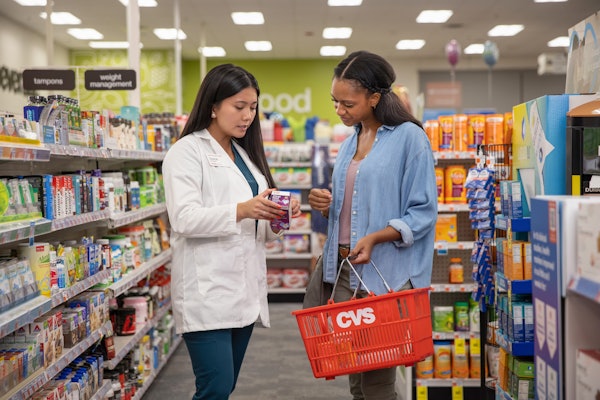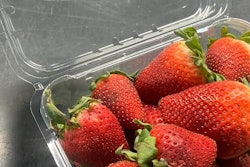UnPACKed with PMMI puts a bow on PACK EXPO East and turns its eyes to PACK EXPO International 2022. ProFood World’s Aaron Hand and Packaging World’s Matt Reynolds discuss trends coming out of PACK EXPO East that the industry should be preparing to see in Chicago. Hand delves into packaging and processing software that engages with employees, offering feedback that reinforces users and ensures they are aware that they are valued as employees. Reynolds continues to unveil the most up to date sustainable materials, who is making them, and where they can be found.
Missed part one and two of our unPACKed with PACK EXPO East series? Listen here and here.
To subscribe, rate, review and find more unPACKED podcast episodes, visit pmmi.org/podcast or find us on Apple podcasts, Spotify or iHeart Radio.
 | Read the full transcript below. |
Sean Riley:
Aaron, this is your first time on the Daily Download at PACK EXPO East, so you've had the most time to be out on the floor. What have you seen that we need to get out to the public?
Aaron Hand:
And I'm just going to apologize for bringing up workforce again, but I think there are a lot of different angles you can come at workforce. And one of the things I was really impressed by... Red zone, way over in the corner over there, is actually working on some... Well, not working on. They have some software that is geared toward really engaging employees. So, they are measuring efficiency, but it's not like, "Hey. Joe didn't work as fast as Tom did or-"
Sean Riley:
Yeah, it's not a babysitter.
Aaron Hand:
Right. Right. Not that sort of thing. But I mean, they are tracking that, but then it's like, "How can we engage them more?" Don't just point out what's going wrong. Give them high fives when they're doing something good.
Aaron Hand:
The thing is that these days we don't have the labor to just throw at every problem. So, they need to figure out how to improve productivity without the labor. One of the things you said that... if somebody stopped by and said that they used to have 5,000 employees, now they have 4,000 employees. And how do you keep producing the same or more with that number of employees? And we think workers aren't getting paid enough to stay in their jobs, but not saying you shouldn't pay them more, but that's actually number 14 on the list of a recent study that Deloitte did looking at why people stay in their jobs. And it has more to do with being heard and getting the recognition and being part of a team and feeling like they're doing something worthwhile.
Sean Riley:
That's interesting. And I don't want to cut you off, but that ties into something that we spoke about. Again, you said we've touched on workforce, but you have to. It's the biggest issue that's facing manufacturing. And it does go to that recognition, having ownership of your job and being engaged, that's all part of it versus just clocking in and getting your $15-$20 an hour, which is interesting that the salary was not the highest thing on the list. Anything else that you saw out there?
Aaron Hand:
And I think that workforce issue kind of leads into... We're paying a lot of attention to emerging brands these days. And actually, I spent most of my day sitting here or over at our innovation stage listening to presentations. And Ron Pukka, yesterday afternoon, gave a good talk about emerging brands and what they need from contract manufacturing and packaging companies to really get the help to start up. And it's not just emerging brands. It's existing brands who maybe don't have the staff they need to produce this new product. They're going to send it off somewhere else. And he was saying a lot of the co-packers are actually... It's hard to do their business model because they think it's a temporary thing. And then they end up staying the entire life of the product. So, there were a lot he touched on there.
Aaron Hand:
So, there's a lot that emerging brands, in particular, don't understand. They've been making their grandma's spaghetti sauce in their kitchen, and now they're trying to take it out there. And so, one of the things he talked about, which I know Matt can touch on this too, is just their lack of understanding of what kinds of materials will work. And a lot of times these small companies come in and say, "I want to be environmentally friendly. So, could you put my spaghetti sauce in a paper cup please?" So, there's a lot of education.
Sean Riley:
Yeah. The idea is there, but the application might not be possible yet with today's technology. And it is. Matt Reynolds has turned into the materials guy. So, let's hear from the materials guy about what additional materials you've had to speak of.
Matt Reynolds:
Well, I had a funny conversation. First of all, just to touch on your workforce, I just had a conversation five minutes ago with Matt Linz of Tri pack. I asked him for some big picture takeaways on the show, and it was just the sharp focus or the sharp relief that automation is being drawn into because of the lack of the workforce, the lack of labor. So, that's a conversation I've had multiple times.
Matt Reynolds:
But on the materials side, there was a funny story from David Smith. He was at J&J for a long time, and now I think he's doing mostly solo work, consulting and so on. He's also on our Editorial Advisory Board. Somebody had come to him, an emerging brand, a newer brand, and they were packaging... I forget what the product was, but it was in a tin can. They're actually steel cans. But came to him saying, "This isn't very sustainable. How can we be more sustainable?" Well, David in his infinite wisdom said, "Well, this is about as sustainable of a packaging system as you could possibly be. Just because it's existed for 50 years doesn't necessarily mean that it's not sustainable."
Matt Reynolds:
So, something to keep in mind. But yes, there are a lot of new materials out there. There's a lot of new... We were seeing quite a bit coming to fruition on monolayer materials. So, any recycling stream requires that for it to be useful, for only one particular type of packaging to go through there. The type of material, film. Polypropylene in one, PE in another.
Matt Reynolds:
So, we're looking at what used to be films that would be lamination of three or four different types of materials that brought properties, like barrier layer or brought robustness or tear resistance and so on. Each layer would have some property that they brought to the party. And now going... basically getting rid of those layers to go down to one, how are you going to be able to run that same material on the machinery that already exists?
Matt Reynolds:
So, we saw Zack Gross was an in an interesting one. They're doing a refill pouch they're doing in their P&G Japan outfit with the brand Pentane. So, that was pretty nifty. That's entirely PE, a little bit of low density, a little bit of high density. So, that can go into whatever recycling streams.
Matt Reynolds:
Also, Emirates Printing. I know they're in line for a few awards coming up from the Flexible Packaging Association. They're doing something with Nestle Middle East, with KIT KAT, and Mackintosh's brand, DATES, all going to that monolayer material, recyclable material. Real, actual, commercialized projects. Also, Amman tea is another one.
Matt Reynolds:
And not just plastics either. It's also... Aperitive is doing something with Stockport on starch-based packs and also, bagasse, of all things. It's sugarcane-based fiberboard.
Matt Reynolds:
So, a lot of interesting materials that are available. The question is, are you going to be able to run that on your 20-year-old machine?
Sean Riley:
Yeah. That's the first thing that pops into my mind from a machinery standpoint is you have a machine already. A. Is this going to be able to run on it? Or, if I am purchasing a machine at a show like this, or a future show, will that material be able to be used on it if I choose to go to it in the future? So, any ideas on how that's going to-
Matt Reynolds:
Yeah. Well, the go-to word here is collaboration, and we'll hear it over and over again, but that's that juncture between the OEM, the machine builder, and the brand. And also, I think it even goes further than that. It goes to the converters, to the people who are actually producing the plastics to begin with the granulate, and then actually converting that into a film.
Matt Reynolds:
So there's a lot of stakeholders that need to all have an equal part of the table to make sure that these materials are A. viable for the recycling stream, but B. are able to deliver the product to the end consumer through the last mile, through the entire supply chain, intact. And which is really what packaging is, right?
Sean Riley:
Exactly. And it ties back to what Aaron said earlier. He's speaking of emerging brands, but as those emerging brands become established brands, they have to be... You want to have your spaghetti sauce in something sustainable. That's your goal from the beginning. Well, these brands that are already existing might be thinking that now. That's a conversation that they also have to be included with the converters, with the... So, the entire... from the beginning to the end, has to know that this is the plan that we're going to go with. Otherwise, you're going to have all these, "We need new equipment. We need new materials." So, yes, collaboration seems to be the word that we bring up at every one of these events.
Matt Reynolds:
Hey, I just have a comment. Just overall, in general, I've heard nothing but really positive notes from the exhibitors today. And one in particular... and the ink is not yet dry, but I believe a PO has been signed-
Sean Riley:
Is this breaking news?
Matt Reynolds:
Breaking news-
Sean Riley:
We're breaking news.
Matt Reynolds:
...coming in now from about six aisles that way, that I was in the booth at Point, and they said I could talk about this when somebody decided to potentially... Again, the ink is not yet dry on that PO, but buy a machine right off the show floor. So, there is no better success story for a store like this.
Sean Riley:
That is the scoop right there, ladies and gentlemen. Matt Reynolds just broke... the materials guy broke a scoop. With that said, thank you so much for attending and viewing this Daily Download. And please... The show's going to be wrapping up PACK EXPO East. A lot of the stuff that we're going to be talking about will live online. But then going forward, you'll be able to see a ton of these trends from all the exhibitors that we've been speaking to. A lot of them are building up to unveiling a lot of even bigger lines and more machinery at PACK EXPO International in Chicago, October 23-26. So, we hope to see you there. Thank you.



